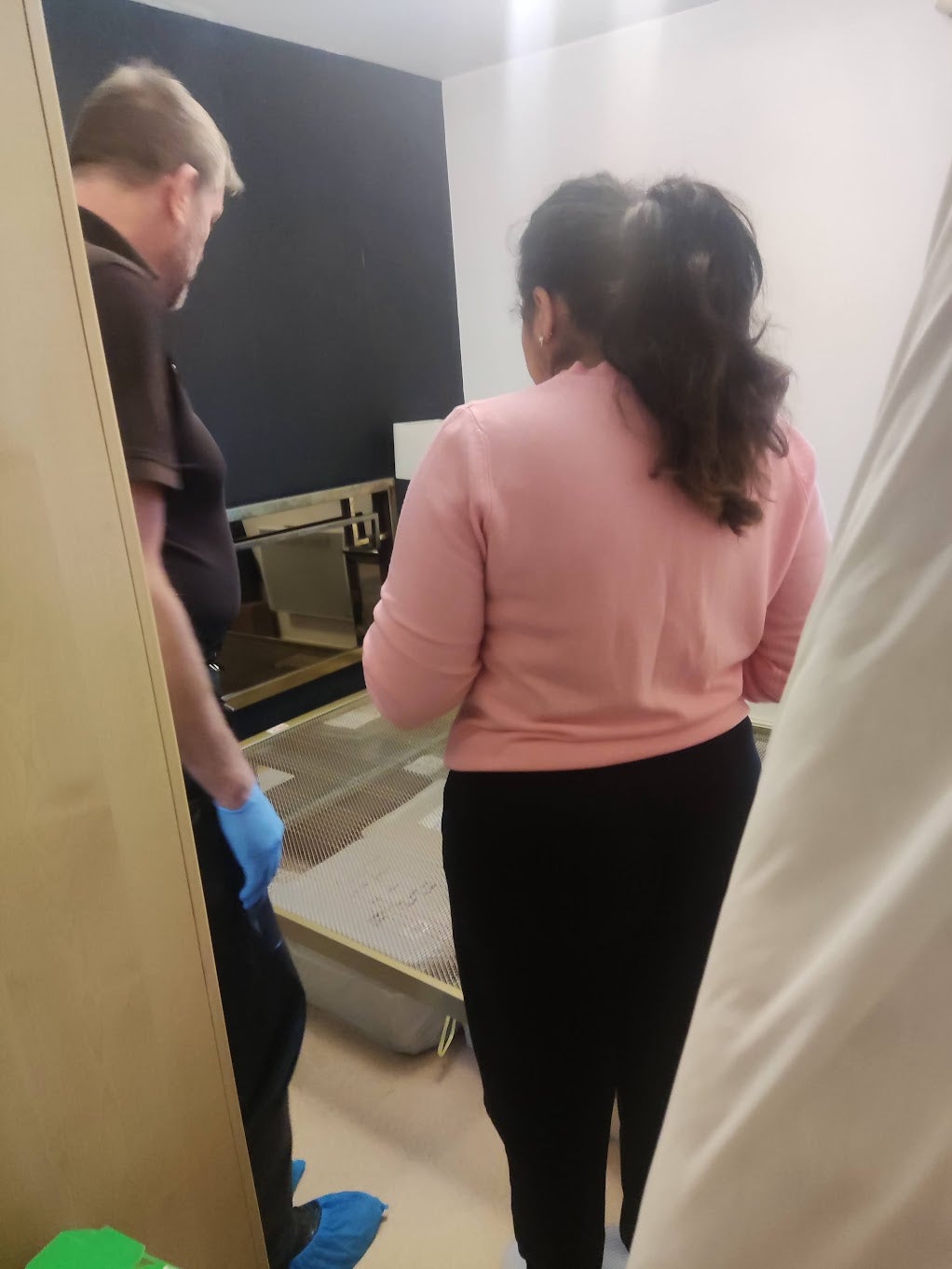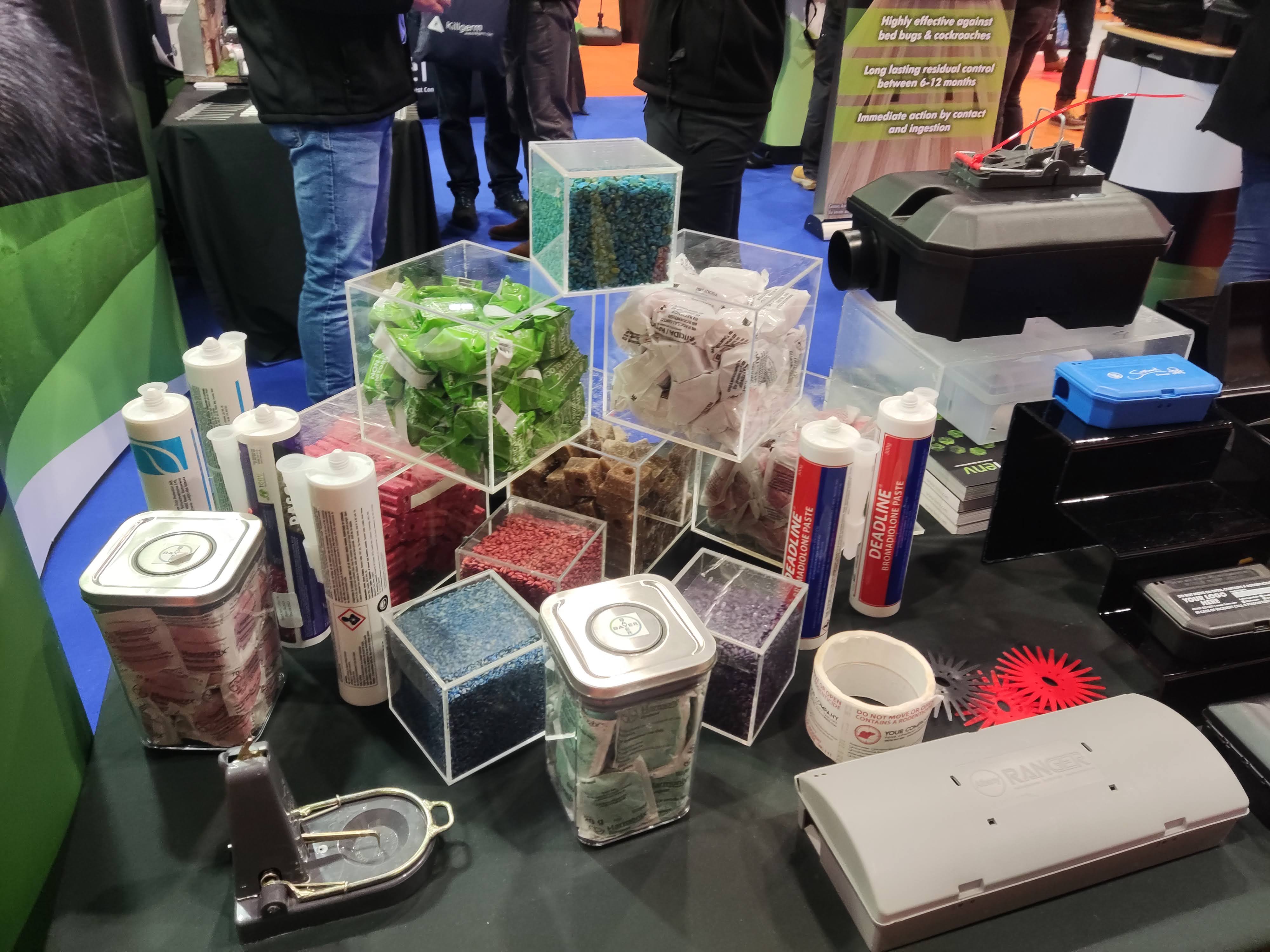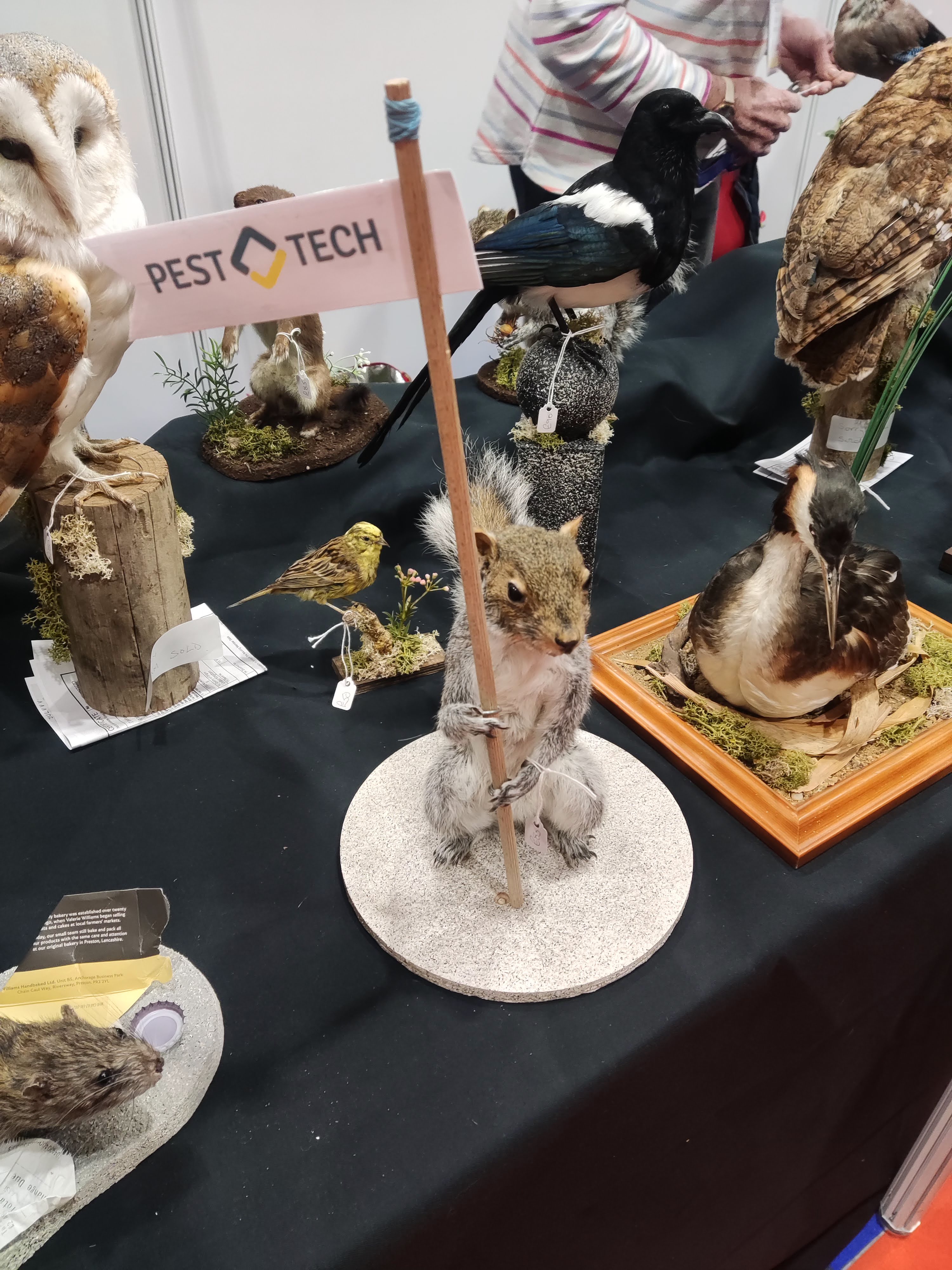Gas, guns and hazmat suits: On the front line in the fight against bedbugs
Barney Davis attempts to ‘earn his leathers’ on a day shadowing bedbug expert David Cain and a visit to the exterminators’ convention PestTech 2023

Your support helps us to tell the story
From reproductive rights to climate change to Big Tech, The Independent is on the ground when the story is developing. Whether it's investigating the financials of Elon Musk's pro-Trump PAC or producing our latest documentary, 'The A Word', which shines a light on the American women fighting for reproductive rights, we know how important it is to parse out the facts from the messaging.
At such a critical moment in US history, we need reporters on the ground. Your donation allows us to keep sending journalists to speak to both sides of the story.
The Independent is trusted by Americans across the entire political spectrum. And unlike many other quality news outlets, we choose not to lock Americans out of our reporting and analysis with paywalls. We believe quality journalism should be available to everyone, paid for by those who can afford it.
Your support makes all the difference.Stay two paces behind me, and don’t sit down anywhere unless I tell you to,” a veteran bedbug exterminator tells me as I follow him into a suspected infested flat in north London.
In his decades on the job, microbiologist David Cain has annihilated swarms of the blood-sucking insects – from £125m superyachts off the Spanish coast, a £5m townhouse in Knightsbridge belonging to a media baron, whom he refuses to identify, and Tudor beds in Hampton Court, as well as London tenements.
“Bedbugs are the great leveller,” he says. “I’ve seen captains of industry, people at the top of their field, reduced to tears, shaking in the corner of the room.”
Our inspection comes weeks after bedbug hysteria sparked panic on the streets of Paris and a few of the creatures crossed the English Channel, hitching a ride on unsuspecting tourists heading to London.
We walk past an ominously tossed mattress, a telltale sign that someone nearby may have an infestation.

With only the blue plastic shoe-covers you get at swimming pools for protection – I was expecting a full ET-style hazmat suit – I take a deep breath and step through the customer’s front door.
I’m putting my trust in David’s 20 years of experience as an exterminator, a collector of bedbug memorabilia, and an author of two journals on the insects, hoping he will shield me from the horror of the blood-sucking mini-beasts that had pensioners and children fleeing a west London library recently.
The callout is to help a 58-year-old recently retired NHS ethics officer who had read media reports of a looming bedbug invasion. She called David’s company Bed Bugs Limited after finding three bite marks behind her knee, which sent her into a spiral of anxiety.
David gets to work to give her an answer, nonchalantly flipping over the mattress – I cross my fingers behind my back.

As he scans the environment, he recalls his first ever pest control job, saying: “I tipped the bed over and saw 5,000 bedbugs looking back up at me.
“I felt I was in a Dickensian novel, but the decor of the flat was more 1960s. I was hugely repulsed. I wanted to rip my skin off, but I got this whole morbid fascination – like, how did they get here?
“In those days, the bedbugs we were encountering were not as hardy as they are now.”
The homeowner, who wishes to remain anonymous, is told the good news: there are no bedbugs here.
She squeals with delight and throws her arms around her new hero. She happily pays the £75 callout fee for the peace of mind after weeks of bedbug-induced insomnia.


“I was thinking I had to throw out everything, my make-up, my shoes,” she says. “I had exhausted myself hoovering. I’m sure I saw one on me.
“It was this tiny slither on my arm, and I freaked out. It really hurt. My worst nightmare is an infestation of insects – I’m more scared of that than I ever was of Covid.”
David, 46, tells her that what she saw was most likely a common booklouse – a creature that doesn’t bite but can cause an allergic reaction.
After leaving, he says: “That is quite rare, how she hugged me. I don’t really like human contact, but I let it happen to reassure her.
“She was the type of person that, if I didn’t hug her, she would convince herself she must have some bedbugs left over.”

TikTok, the Kremlin and mainstream media have all been accused of spreading disinformation about the reported spike in cases.
David tells me of a man who, driven to near-madness by sleep deprivation, poured liquid nitrogen all over his bed in a final, dramatic act of desperation.
The bedbugs we are encountering nowadays, he says, are stronger, more resistant to toxins, and have even evolved suction cups on their limbs to climb up all but the cleanest, mirror-smooth surfaces.
Most terrifyingly of all, some even know to raise their bodies and “tiptoe” over any poison left out for them.
So how can we deal with them once and for all? I was hoping to find out at PestTech 2023, an annual conference uniting a thousand-strong army of exterminators tasked with saving humanity from the bedbug peril.
Approaching the Marshall Arena in drizzly Milton Keynes, you pass vans belonging to pest-control companies called “The Extermin8rs”, “The Eradic8rs”, “The Fumig8ors” – and another called simply “Colin’s Traps”.

One supposed bedbug-detecting spaniel sniffs at the endless rows of exterminator vans like a bomb detection dog would do at a military checkpoint.
David swaggers in like John Wayne into a saloon, turning heads in the small world of pest control. People run over to him to say “Surprised you’re here.”
As a qualified microbiologist, he had very publicly stormed out from one event where a speaker got the science wrong, and he loudly dismisses new bedbug treatments he considers to be no more than “snake oil”.
Other exterminators call him “Saxondale” – conjuring up Steve Coogan’s underrated depiction of an ex-roadie turned pest controller – because of his penchant for leather trousers that he has custom-made according to his own designs.


When a young bedbug apprentice makes the grade, David proudly presents them with their own pair of leather trousers in an initiation ceremony he calls “earning your leathers”.
Back at the show, Birmingham-based air rifle designer David Mills is showing off his customised laser-sighted weapon that can kill a squirrel at 50 yards. You don’t need a licence to buy one; you just need to be 18 years old, he says, loading the gun.
The 60-odd stalls sport taxidermy, rental falcons, stoats, and even snakes on display for a more medieval solution to unwanted rodents.
There are rifle ranges, meeting rooms where middle-aged men huddle over weak coffees, and seminars on phantom insect bites and “innovative” pheromone traps.
At one presentation, Richard Faulkner, from Envu, tells a gripped audience through microphone feedback that he thinks he may have found the solution.

He unveils TruDetx’s Covid-style rapid-flow bedbug tests, which mimic the Covid tests we all got used to in the last public health emergency. But instead of jamming it up your nose, you wipe the test on your mattress, or wherever you think bedbugs have been, to collect their antigens.
As Richard elaborates on the 90 per cent accuracy rate of his tests – which cost a hefty £156 for five – the eyes of the exterminators, who have seen a 196 per cent increase in callouts in the last year, light up.
Richard says: “This gives people scientific back-up to say that bedbugs are there, even if you can’t see them.”
After the demo, he explains: “The upsurge we are seeing is maybe from the media, but also the freedom of travel after Covid. We’ve heard of bedbugs increasing by up to 65 per cent this year. It’s a very big year for bedbugs.”

”But you’re never going to truly eradicate an entire species,” he concedes. “Every insect is part of a food chain, a life cycle, but as long as it’s not inside, bothering me, do I really need to worry about it?
“Bedbugs have been around for ages – even Henry VIII had bedbug exterminators, there are portraits of them. They are fascinating, wonderful creatures, in their own way.”
David, though, would like to see a public education drive to stop the spread of bedbugs rather than simply increasing the level of poisons that you just “pray and spray”, and which the insects eventually adapt to.
“The real danger is putting powerful chemicals in the hands of idiots,” he says, pointing to the tragic deaths of John Cooper, 69, and his wife Susan, 63, who were found dead after a neighbouring room at the Steigenberger Aqua Magic Hotel in Egypt was fumigated for bedbugs. “People don’t think about evolution, selective environmental pressures, and all the terms a biologist knows. The industry just teaches you to spray more and more.”
Join our commenting forum
Join thought-provoking conversations, follow other Independent readers and see their replies
Comments